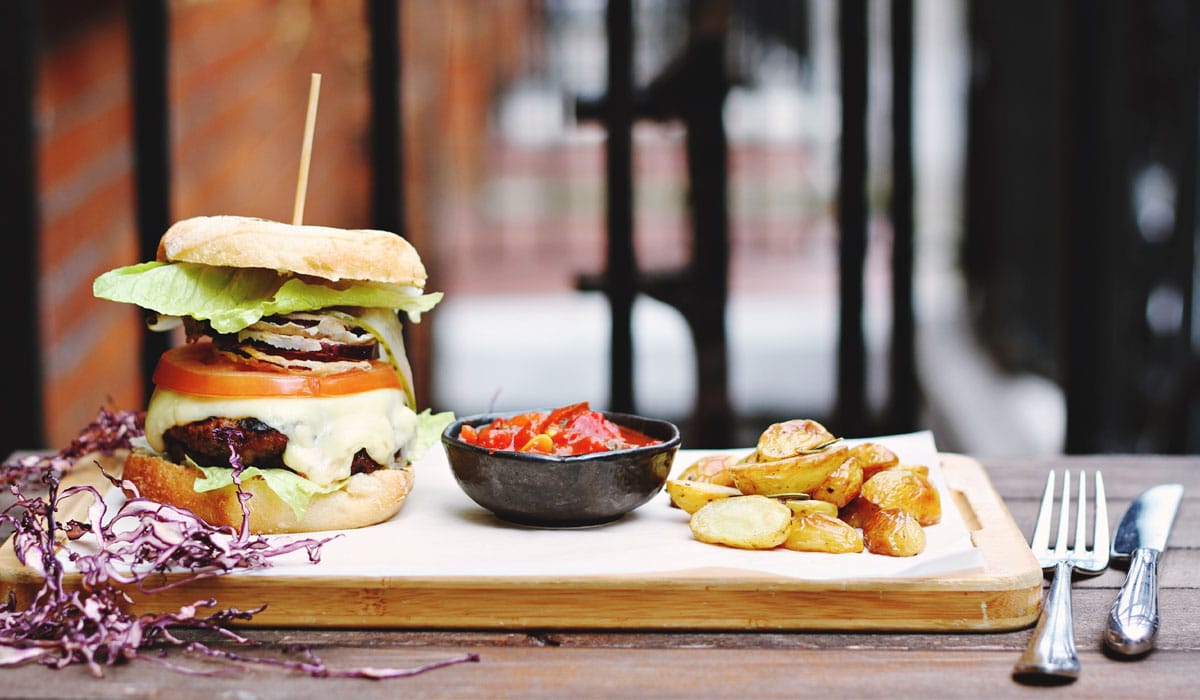Here is the sharp reality of the CARES Act. As currently structured, it’s just not providing desperately needed relief to the restaurant industry. The National Restaurant Association penned a new letter to Congressional leaders April 9 stressing the “increasing warning signs,” that more funds will be required to save operators and employees during the COVID-19 crisis.
The Association estimated early impact (the first 22 days of March) at three million restaurant jobs and $25 billion in revenue. It added that 15 percent of restaurants have, or will within the next two weeks, permanently close, and total jobs lost could hit seven million before the crisis abates.
To put that figure in perspective, it took two years for 8.6 million to lose their jobs during the Great Recession. And that was across all sectors.
The Association’s most recent projection is for March and April revenue losses to approach $100 billion.
READ MORE:
WHY THE CARES ACT SHORTCHANGES RESTAURANTS
INDEPENDENT RESTAURANT LEADERS SOUND OFF ON BILL’S SHORTCOMINGS
THE BIG PROBLEM WITH THE STIMULUS PROGRAM
STAY UP TO DATE WITH OUR CORONAVIRUS LANDING PAGE
“While COVID-19 funds are helping many businesses and employees across the country, there is no escaping that a growing number of restaurant owners feel that the [Paycheck Protection Program] is not going to prevent them from permanently closing their operations in local communities,” Association EVP Sean Kennedy said in a statement.
“The premise of the Paycheck Protection Program is to be a vital way of allowing restaurants to bridge this crisis, but there are warning signs that it is not providing the relief that is so desperately needed for our industry,” he added.
In recent days, the Trump administration has urged Congress to approve an additional $250 billion for small businesses—a move the Association applauded.
President Trump made the announcement Tuesday and Senate Majority Leader Mitch McConnell indicated he wanted to pass the funding as soon as Thursday.
The previous day, House Speaker Nancy Pelosi and Senate Minority Leader Chuck Schumer introduced a $500 billion plan that includes $250 billion for small businesses. However, half of those funds would be for women, minorities, and veterans. The plan would also bring aid to hospitals, state and local governments, and those on food stamps.
The talks are ongoing. However, as things currently stand, “The PPP is funded at $349 billion, and we expect that lenders will reach that ceiling shortly,” the Association said.
It is calling for expanding the program “to the maximum possible level,” and highlighted the fact operational and staffing issues unique to the restaurant industry have hindered operators’ access to PPP funding so far.
To address these challenges, the Association asked Congressional leaders to address the following:
Revise Loan Restrictions In Light of Industry Realities: In order to achieve forgiveness, the Department of the Treasury mandated that 75 percent of the PPP loan must be spent on payroll. In an industry currently operating with skeleton staffs—if at all—this limits the benefit to restaurant owners. Some operators spends as much as 50 percent of their monthly expenses on lease or mortgage obligations. This mandate must be altered to a lower percentage of no more than 50 percent spent on payroll.
Provide Flexibility in Timing for Restaurants to Use PPP Loans: The “covered period” of the PPP requires that restaurants use the loan within roughly eight weeks of its origination. The growing reality is that many restaurants will be nowhere near full operating capacity within that time. Allowing loans to be retained until a full reopening takes place will stabilize the business and ensure that millions of restaurant employees stay employed for the long term. Specifically, the outside rehire date should be changed to at least 90 days from when they are allowed to fully reopen, which would allow for a ramp-up period back to some kind of normal business cycle. Finally, the PPP should be extended through December 2020, with an adequate appropriation and an extended hiring window for restaurants to rehire full-time equivalent employees. This allows a ramp-up period that returns to something approaching a normal business cycle.
Ensure Loan Terms Match Congressional Intent: The legislative text of the PPP clearly allows loans to have up to a 10-year maturity date, yet the Department of the Treasury has mandated that loans have only a two-year term. Our industry has a very long, uncertain path to recovery by virtue of state-mandated closures and the long-term effects of social distancing. The terms should reflect the reality that recovery for the us will take far longer than two years.
Exemptions from Loan Forgiveness Reduction: Congress should re-emphasize that the SBA Administrator and the Secretary of the Treasury can act on their explicit “de minimis” exemption authority under PPP in order to protect businesses that face reductions in loan forgiveness, especially if businesses have major declines in sales revenue. Employee retention levels will be a continued challenge for restaurants, as many have changed their business model to accommodate off-premise and online ordering, decreasing the need for servers and other workers. Additionally, sustained social distancing protocols will alter restaurant operations, which will reduce revenue opportunities and staffing levels.
Ensure that 501(c)(6) Nonprofit Organizations Can Participate in PPP: We urge the Congress to include 501(c)(6) organizations in the definition of an eligible nonprofit under the PPP. The critical function of State Restaurant Associations is more evident than ever, as restaurants across the nation rely on them for guidance and assistance at the state and local level. Additionally, Destination Marketing Organizations are critical to promoting local tourism and a strong economy for local communities. Both of these vital organizations are currently ineligible to participate in the PPP and face tremendous economic damage as the restaurant and hospitality industries suffer.
Deferral of Certain Tax Payments to Provide Liquidity: Businesses utilizing the PPP and seeking loan forgiveness must be allowed to defer payroll taxes owed this year to the next two years, as provided under Section 2302 of the CARES Act.
Also, the Association asked officials to consider two changes to programs outside of the PPP:
Improve Access to Economic Injury Disaster Loans (EIDL): Restaurants are utilizing the EIDL program in light of the disaster-level economic consequences for our industry. Barriers like the personal guarantee and collateral requirements for EIDLs should be removed so that employers and employees can utilize this liquidity immediately. Additionally, restaurants should be able to access a second EIDL during this crisis considering the unique, prolonged disaster it will have on our industry.
Improve the Employee Retention Tax Credit (ERTC): The ERTC must be amplified to ensure more businesses can retain employees during government-ordered shutdowns by states and social distancing protocols issued by the federal government. Specifically, Congress must increase the maximum wages allowed for the credit, under Section 2301(b)(1) of the CARES Act, to $20,000 per quarter; allow taxpayers to claim the credit against payroll tax deposits rather than payroll tax liability; and allow restaurants with over 100 employees to utilize the credit for employees who are still performing limited services.
“The severity of this pandemic has made it clear that restaurants will remain closed—or severely curtailed in service— for far longer than originally anticipated,” the Association said.
Another issue at hand, once dine-in operations open back up, the Association said, virtually every restaurants in the country will essentially be a startup in desperate need of cash. “Our industry and its 15.6 million employees deserve a unique response from Congress, and we look forward to providing that perspective in a future letter as you develop a ‘Phase IV’ legislative package,” the Association said.













